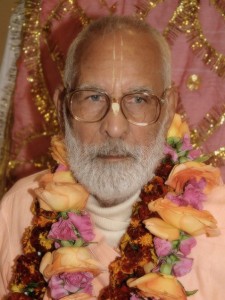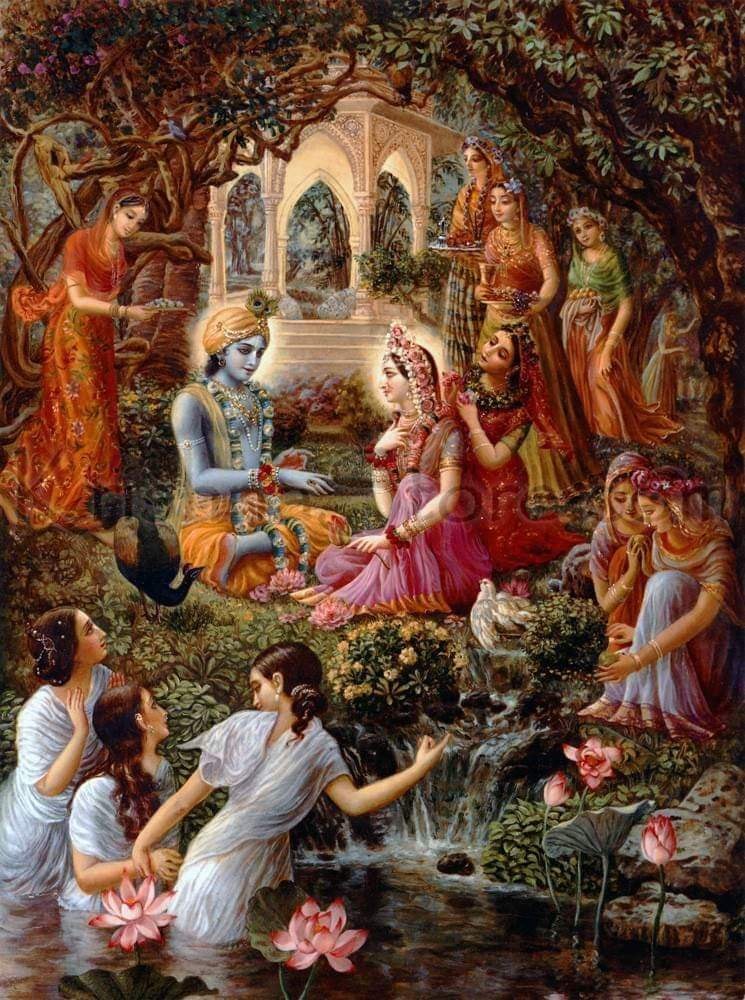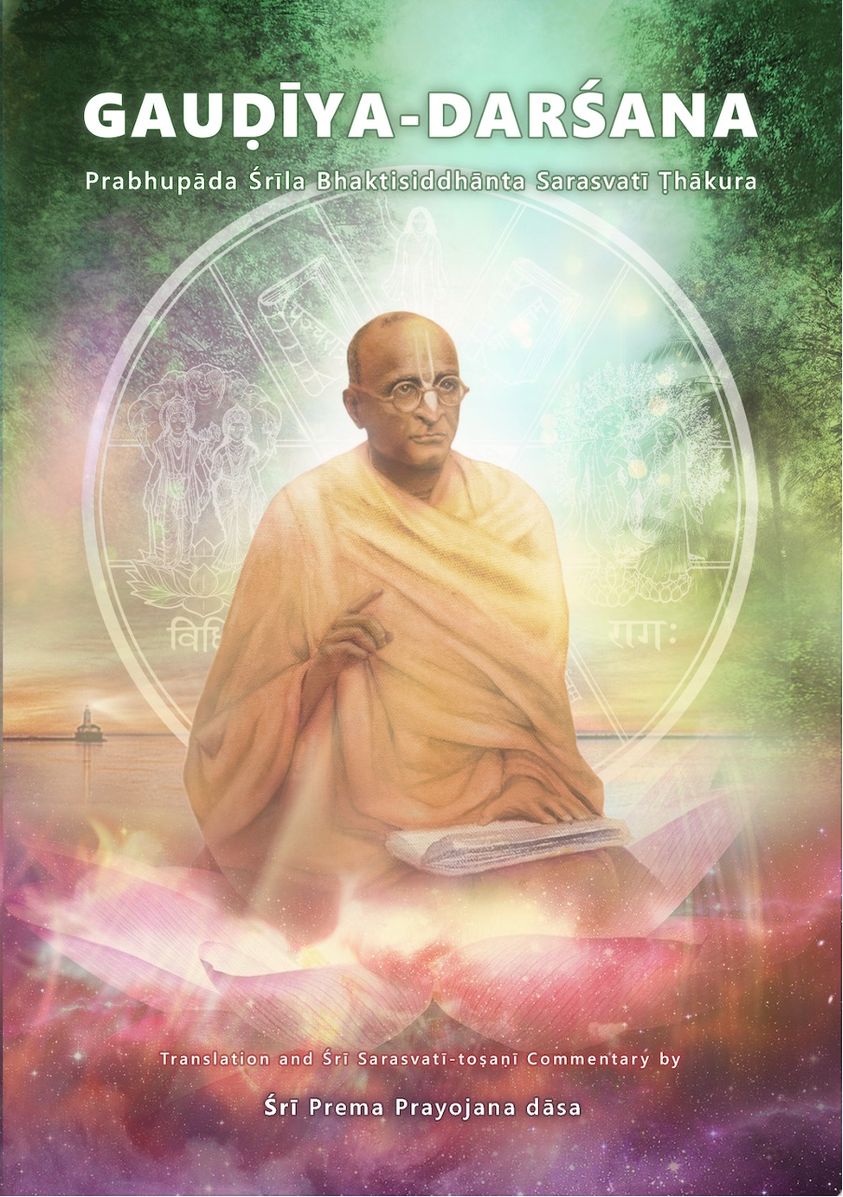
Srila Bhaktivedanta Narayana Maharaja
Based on the wonderful teachings of Sri Srimad Bhaktivedanta Narayana Goswami Maharaja.
CAN YOU SHOW ME GOD?
Once, in India, there was a king who desired to see God. Calling for his chief minister, he asked, "Can you show me God? Can you clearly tell me what God is doing?" The minister, although highly learned, could not immediately think of an appropriate answer to the king's question, so he requested that the king grant him three days to determine a suitable reply. The king agreed but cautioned that an unsatisfactory answer would drastically reduce his faith in him as a minister. The minister returned to his residence and, with much intensity, researched all of the books in his library with the hope of finding an acceptable answer to the king's question.
Two days later, he still had not met with success. As he sat, lamenting, in his library, his five-year-old son wandered over to him and asked, "Father, why do you look so unhappy?" "I am unable to find a reasonable answer to a question the king has asked me and, as a result, I may lose my post in the court." "What is the king's question?" the boy inquired. "It is too lofty a question for you to scrutinized all the scriptures but cannot find a conclusive answer to this question." The small boy smiled sweetly and replied, "Father, this is simple. When you go to court tomorrow, tell the king that the answer to this question is so easy that even your small son can tell him how to see God and explain what He is doing." The forlorn minister looked at his son in disbelief, but his son reassured him, saying, "Don't worry, Father, I promise I will not let you down."
The minister, now desperate, had no alternative but to place his hope and faith in his small boy. The next morning, they went to the royal court together. The king received his minister and again inquired, "My dear minister, can you show me God and tell me what He is doing?" The minister humbly replied, "O King, this question is so simple that even my young son can answer it." Although he was surprised, the king turned to the boy and said, "Very good. Well, my dear boy, can you show me God and tell me what He is doing?" The small boy said, "Dear King, please bring a large pot of milk." Although somewhat taken aback at this request, the king complied. "My dear King, is there butter in this milk?" the boy asked.
The king thought for a moment. "Yes, of course, there is butter in the milk," he said. "Can you show it to me?" inquired the small boy. "Yes," replied the King, "but first, in order for the butter to be seen, we must churn the milk." "Exactly," replied the boy. "Similarly, there is a process by which we can see God. When we follow that divine process, God will surely manifest before us. Without this process of devout spiritual practice, God is hidden from our direct sight, in the same way butter is hidden within milk until the milk is churned." Upon hearing this wonderfully logical explanation in response to his first question, the king was fully satisfied.
He then asked the minister's son to answer his second question. "Now, can you tell me what God is doing?" "Well," said the small boy, "you are inquiring from me just as a student inquires from the guru, but you are sitting upon a high throne and I am sitting before you on the ground. According to etiquette, you should be sitting in the humble position and I should be sitting on the elevated seat." Seeing the truth in the boy's words, the king rose from his throne and sat on the floor.
The small boy ascended to the throne. "This is what God is doing," said the boy. "Sometimes He puts us in a high position and sometimes in a low one, according to the results of our previous activities. Sometimes we take a seemingly exalted birth and sometimes we take a lowly one. God is arranging these changes and awarding different results according to our karma." The king was so satisfied with the boy's answers that he proclaimed these truths throughout his kingdom. He handsomely rewarded the minister and his brilliant son with many valuable gifts.
WHERE TO PLACE OUR LOVE AND TRUST
As in the story, we understand the need to follow a process to achieve our goal, but how are we to decide which process to follow? All of us are guided to follow some sort of instruction throughout life. Social customs, national laws, sentiments, parental instructions and peer pressure govern us. During early educational years, our teachers guide us. We tend to adhere to traditional values and accept the knowledge presented in various textbooks. If we choose to ignore these guides and listen instead to our sometimes uncontrolled minds, we may find ourselves in a position where we are condemned by the administrating government and dealt with accordingly.
We are free souls in the sense that we may choose the authority in which we want to place our love and trust. It is ultimately worth following the purest knowledge and the highest authority because only they can successfully guide us to an elevated, more peaceful state of consciousness. Philosophers throughout the ages have presented numerous solutions to life's difficulties. As astute as their philosophies may be, none of them has offered a path as broad or conclusive or as ontologically complete as the one presented in India's ancient Vedic scriptures.
All other philosophies and religions of the world are rooted in these scriptures. The original language of the Vedas is Sanskrit, which is the world's oldest language. These scriptures, which have their origin in God Himself, have been carefully passed down, unchanged, from teacher to student for millions of years, since the beginning of time. We will draw from these authentic scriptures to present the following analysis of the goals attainable by a human being, including the highest goal, a bona fide destination well beyond all the inebriates of this world.
The Vedic scriptures proclaim that all persons, consciously or unconsciously, pursue one of three distinct paths. The three goals and the practices required to achieve them are clearly described as follows:
1. Most of us follow the path of satisfaction of the material senses, which we hope will bring us happiness. These senses include the mind and intellect. Such external material enjoyment is called bhukti in Sanskrit.
2. A few of us, desiring to taste the pleasures of our inner selves, pursue the path of liberation from the sufferings of this world. This type of liberation is called mukti.
3. Even fewer of us yearn to serve God with pure loving devotion. The path of devotional service to God is called bhakti, or bhakti-yoga, which literally means to link with the Supreme Person through loving service. If we carefully contemplate the above choices, we can appreciate that every human being is striving to achieve one of these goals.
To learn more about our philosophy, please come to our meetings and join us, or contact the editor
Devarsirat das devarsi@harekrishnasociety.com

 Posted in
Posted in 







